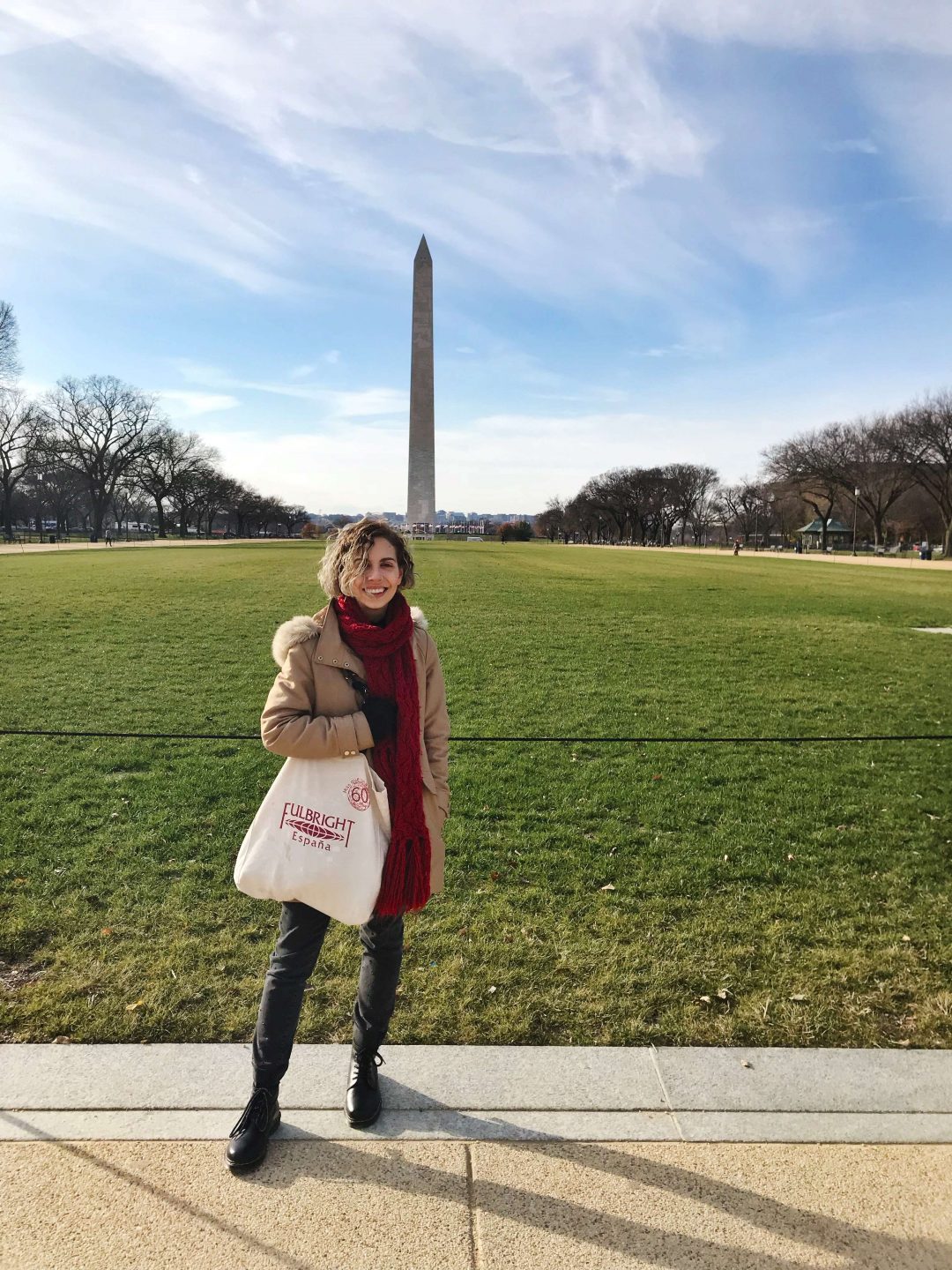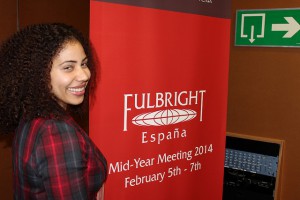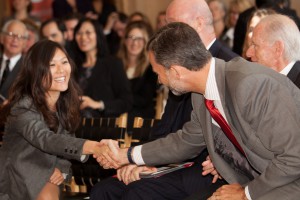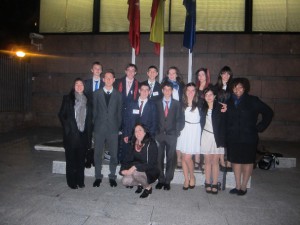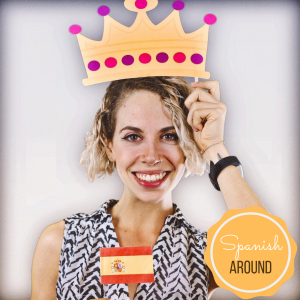
I’m on a plane. Destination: Bangkok. I’m moving to Thailand to teach Spanish at Chulalongkorn University, the most prestigious university in the country, as part of an international teaching program funded by the Spanish Ministry of Education. As I float above the clouds, I can’t help but think back to my time with the Fulbright Program and feel a sense of profound gratitude. The Fulbright Program, after all, is the reason why I’m on this plane. That’s because the year I spent as a Foreign Language Teaching Assistant (FLTA) at the University of Arkansas managed to do what I thought impossible: re-kindle my passion for teaching.
Let’s back up a little. In 2015, I moved to Scotland, where I taught Spanish at the University of Glasgow for two years. I loved teaching, but I wasn’t in the right mindset, and each day seemed harder to finish. I wasn’t sure what I wanted to do with my life. So I made a decision: I returned to Spain to find something else to do. Moving back home after two years of independence proved to be hard, but I applied for a Fulbright Foreign Language Teaching Assistantship. I had no expectations of getting it, but—thank the universe—I did!
In August 2018, I moved to Fayetteville, Arkansas, to begin my time as an FLTA. At first, I found the educational system a bit challenging to adapt to for several reasons. To start with, teaching assistants in my home country of Spain typically take on more of an observing and learning role, teaching with the support of the lead teacher for practice. I was surprised to find that here, teaching assistants direct language instruction. Soon, though, I allowed myself to take control of my classes and had lots of fun with my students. I taught two Intermediate Spanish II groups per semester, with around 10-15 students per group.
My first shock was finding out I would teach at 7:30 in the morning! Classes in Spain and in other countries, such as Scotland, where I had worked before, start at 9:00 A.M. at the earliest! I soon discovered, however, that most of the students really wanted to be there – even at that early hour. My students were receptive, active, funny—everything a teacher could ask for. I’m not one to stick to dry lessons that could lead to a group full of sleeping students, so I started creating my own materials while still following the official syllabus. I loved spending hours designing posters and making up games. I loved practicing with my students, and the best part was that they seemed to love it, too.
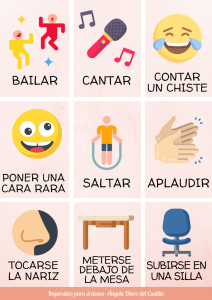
Colorful, eye-catching graphics encourage foreign language students to engage with the material
My enthusiasm rubbed off on my supervisors, who were supportive of me: they bought me materials — printed in full color, and introduced me to new teaching resources. I wanted to do more, so I took online courses in design and Spanish teaching methodologies as a way of exploring my newfound creativity. Yes, it was a lot of work, but if you put your effort and passion into something, your students will notice and be inspired to work harder, too. In an evaluation, one of my students wrote, “The devil works hard, but Ángela works harder.” I need that saying printed on a t-shirt!
My Fulbright experience wasn’t perfect. Moving to the other side of the world, to a different culture with a different educational system and values, not knowing what to expect, and all on my own, wasn’t easy. My advice to future applicants is to make an effort to integrate yourself within the community. There will always be hard times when you feel insecure and homesick, but if you give this opportunity a chance, it will be worth it. And, you never know: you may also discover your passion and future vocation while on Fulbright.
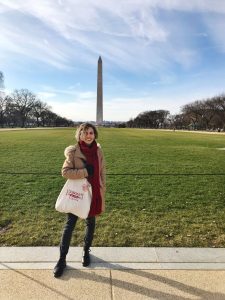
Ángela visits Washington, DC with her trusty Fulbright España tote bag!
If you want to know what Fulbright can do for you, picture me in 2017: no job, no passion, and no idea of what to do with my life. Now, picture me in 2019: I love teaching and have found a new passion and a sense of self-confidence. Now, having landed in Thailand, I’m ready to continue on this newfound path where I love what I’m doing – all thanks to my time as an FLTA.

